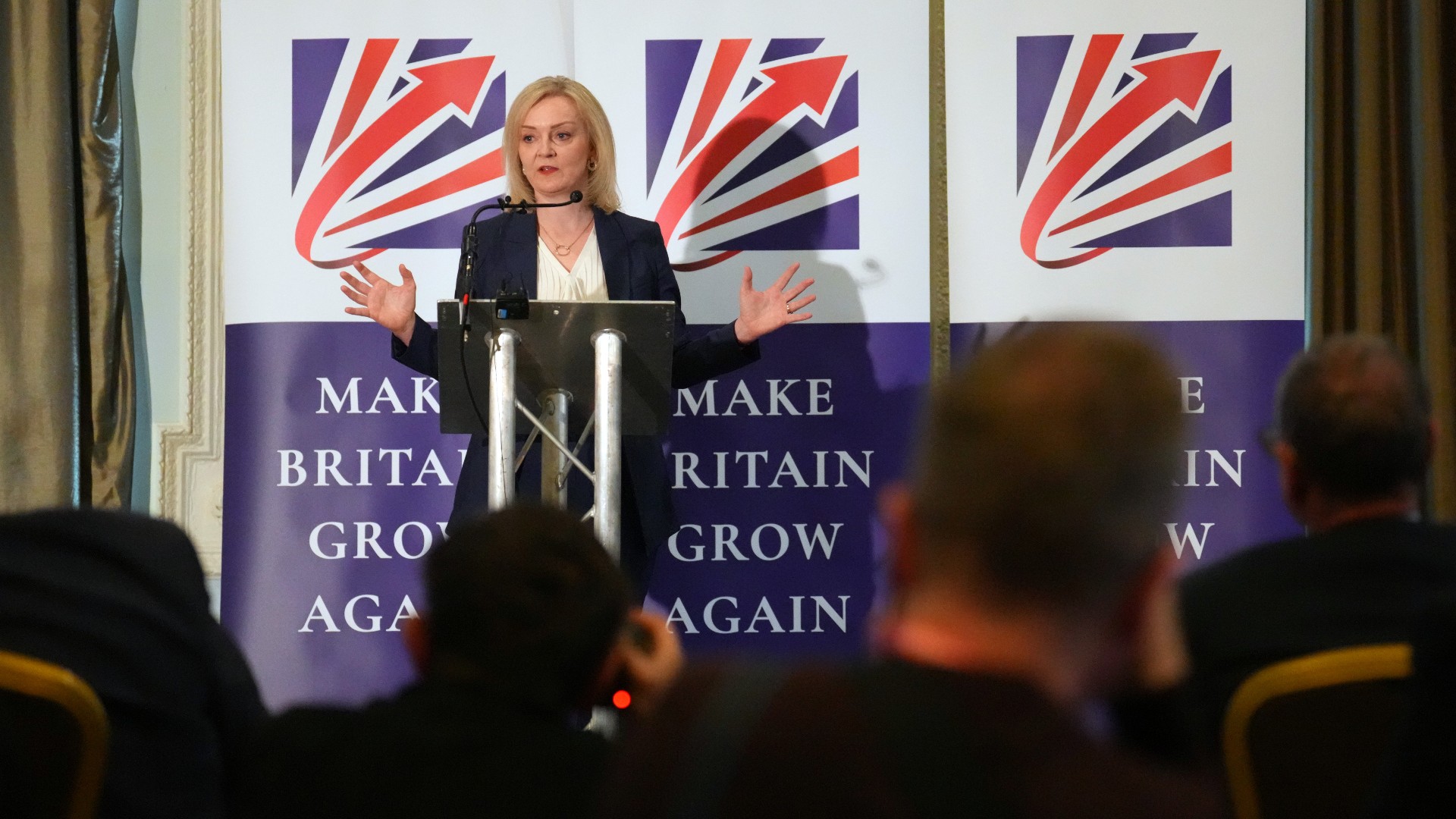The Tory tribes vying for influence at this year's party conference
From free-market ultras to culture warriors, the party's electoral coalition is starting to fracture

A free daily email with the biggest news stories of the day – and the best features from TheWeek.com
You are now subscribed
Your newsletter sign-up was successful
Rishi Sunak hoped a picture of party unity at the Conservatives' conference in Manchester would provide the platform to reset his premiership ahead of next year's general election.
Instead, the first few days of the annual gathering have revealed bitter infighting, with different tribes vying for influence and attention.
Membership of what are mainly unofficial groupings overlap, said The Guardian, and "divisions are often more Venn diagram than hard borders".
The Week
Escape your echo chamber. Get the facts behind the news, plus analysis from multiple perspectives.

Sign up for The Week's Free Newsletters
From our morning news briefing to a weekly Good News Newsletter, get the best of The Week delivered directly to your inbox.
From our morning news briefing to a weekly Good News Newsletter, get the best of The Week delivered directly to your inbox.
The free-market ultras
It may surprise those not used to the idiosyncrasies of internal Tory politics that exactly a year on from her disastrous 49-day term as prime minister – when her radical tax-cutting programme spooked the markets and turbocharged interest rates – Liz Truss is back as the darling of the Conservative Party conference.
Leading the call against what she first described in office as the "anti-growth coalition", Truss is the standard-bearer for small state, low tax, supply-side reforms.
These ideas still have "significant currency across a swathe of the Conservative Party", said The Times, while several of her former ministers "retain enough of a profile to carry significant sway".
Presenting themselves as keepers of the Thatcherite flame, these free-market ultras include former business secretary Jacob Rees-Mogg, former home secretary Priti Patel, former housing minister Simon Clarke and Ranil Jayawardena, who leads the recently formed and increasingly influential Conservative Growth Group.
A free daily email with the biggest news stories of the day – and the best features from TheWeek.com
As Richard Vaughan and Hugo Gye wrote in i news in February, those backing Truss's revivalist mission leave Sunak "at risk of becoming sandwiched" between the two previous incumbents.
Northern Tories
With the Tories trailing Labour by double digits in opinion polls, this group of MPs from the North "are focused on policies that could appeal to Red Wall voters who switched their allegiance from Labour to give Boris Johnson his landslide victory at the general election four years ago", said The Independent.
Known as the Northern Research Group (NRG), they have lobbied the government for more tax responsibilities to be devolved from Westminster, the prioritisation of an east-west rail line linking Liverpool and Hull, and the creation of a "minister for the north".
Made up of prominent figures including former party chairman Jake Berry and current Tory deputy chairman Lee Anderson, "the yearning for the party to look beyond England’s south-east finds an echo among Scottish Tories and others including the north-east mayor Ben Houchen", said The Guardian.
This group will be crucial to how Sunak's impending decision to scrap HS2 between Birmingham and Manchester – and the government's wider levelling up agenda – will go down with voters in the North. Channel 4 News reported that "they’d accept a compromise over connections to London as long as East-West links connecting Northern cities get built".
Culture warriors
Promoting an anti-woke, anti-immigration message, this group of right-wing pro-Brexit MPs could make the running at the next Tory leadership contest. Champions of what they term "national conservatism", leading lights include Home Secretary Suella Braverman and Business Secretary Kemi Badenoch.
While there is an overlap with the social conservatism of Northern Tories, theirs is a "more pessimistic, authoritarian, explicitly Christian and anti-woke world-view, closer in spirit to some of the national populist movements in Europe than to neoliberalism", said The New Statesman.
Among the most vocal are Danny Kruger and Miriam Cates, who lead the so-called New Conservatives group of MPs from the 2017 and 2019 intake. It has called for a ban on "gender ideology" being taught in schools, curbs on legal migration and the withdrawal from the European Convention on Human Rights (ECHR).
This tribe may be on "the fanatic fringe", wrote Yasmin Alibhai-Brown in i news, but to an extent it has already been "absorbed into the mainstream of Conservative politics", said The Guardian, "with even Sunak, once mistakenly viewed as a largely ideology-free technocrat, expected to lean increasingly into culture war issues as the election approaches".
'One Nation' Tories
Probably the largest group, centrist 'One Nation' Tories are also the least formalised. They "have struggled for influence under recent prime ministers" and "currently lack a standard-bearer for the internal debates convulsing the party", reported The Times.
Made up of MPs who present themselves as serious politicians for serious times, they boast the likes of the chancellor, Jeremy Hunt, security minister Tom Tugendhat, Tobias Ellwood and Damian Green among their number.
Less vocal than other Tory factions, the group appears to be "biding their time for what could be a bare-knuckle fight against the culture warriors and Truss's rump group of ultra free-market devotees for the future direction of the party", The Guardian concluded.